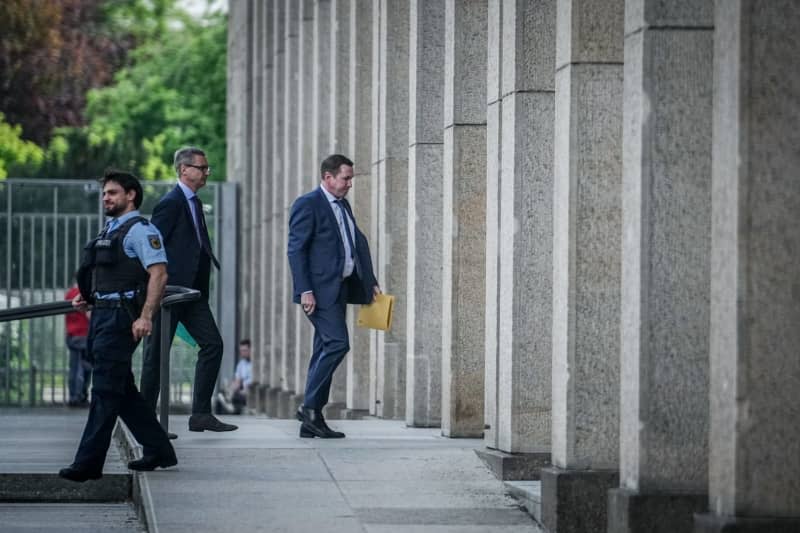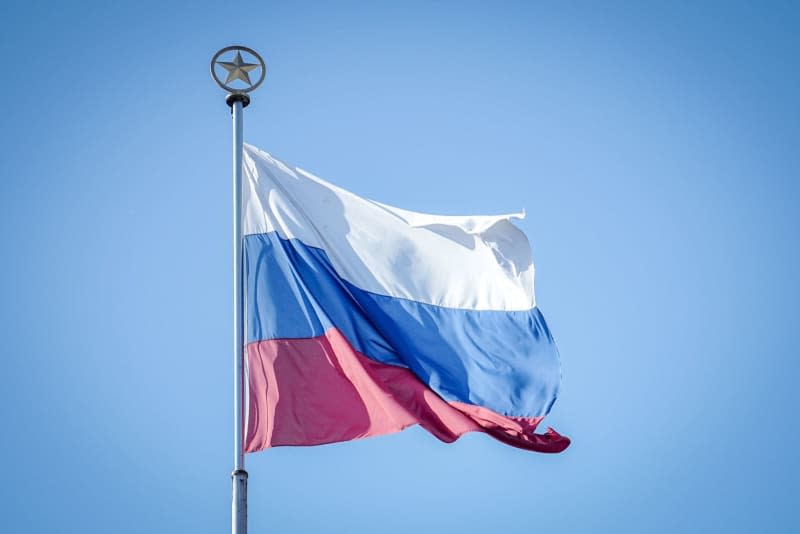In response to a Russian cyberattack on the ruling center-left Social Democratic Party (SPD) last year, Germany summoned the acting chargé d’affaires of the Russian embassy.
The chargé d’affaires, Alexei Korlyakov, was summoned around midday, a spokesman for the Foreign Office said in Berlin on Friday.
“[It is a clear diplomatic signal] “To make it clear to Moscow that we do not accept this behavior, that we clearly condemn it and that we reserve the right to impose consequences,” the spokesman added.
In June 2023, the SPD announced that its executive board’s email accounts had been the target of a cyberattack at the beginning of the year.
According to the SPD, this was made possible by a security gap in software that was not known at the time of the attack. “It cannot be ruled out that data from individual email inboxes will be leaked,” the SPD said in a statement.
The names of those potentially affected were not disclosed. It also initially remained unclear how many email accounts were attacked and how much data was skimmed.
SPD General Secretary Kevin Kühnert said there were “well-founded indications that the attack was carried out by attackers from Russia.”
According to Foreign Minister Annalena Baerbock, the federal government’s investigation into the incident – known in diplomatic jargon as the “attribution procedure” – has now been completed.
“We can now clearly attribute this attack from last year to the APT28 group, which is controlled by the Russian secret service GRU,” the minister said. “This is completely unacceptable and will not go without consequences.”
Neither Baerbock nor a government spokesman said on Friday what consequences this could have. The federal government once again called on Russia to refrain from such actions.
Russia’s irresponsible behavior in cyberspace violates international norms and deserves special attention in a year when elections are taking place in many countries, Berlin said. Cyberattacks against political parties, state institutions and critical infrastructure companies are a threat to democracy, national security and a free society, it said.
The European Union has already imposed sanctions on individuals or organizations in similar cases. Travel bans or the freezing of assets are conceivable.
The bloc “is committed to using the full range of measures to prevent, deter and respond to Russia’s malign behavior in cyberspace,” said an EU statement issued by EU foreign policy chief Josep Borrel on behalf of all 27 member states released Friday.
“The malicious cyber campaign demonstrates Russia’s ongoing pattern of irresponsible behavior in cyberspace, targeting democratic institutions, government bodies and critical infrastructure providers across the European Union and beyond.”
The NATO military alliance said: “We stand in solidarity with Germany after the malicious cyber campaign against a political party, in this case the Social Democratic Party of Germany, and with the Czech Republic after the malicious cyber activities against its institutions.”
According to the German domestic secret service, the APT28 group has been active worldwide since at least 2004, primarily in the area of cyber espionage. According to the Interior Ministry, it has also carried out disinformation and propaganda campaigns in the past and is “one of the most active and dangerous cyber actors in the world.”
APT stands for Advanced Persistent Threat. Security authorities use this term to describe groups controlled by authoritarian states that are tasked with systematically carrying out cyber attacks. So far, around 40 of them have been identified.
The German domestic secret service clearly assigns APT28 to the Russian military intelligence service GRU.
The group was blamed for a major cyberattack on the lower house of the German parliament, the Bundestag, in 2015 and later in the US for an attack on the Democratic Party ahead of the 2016 presidential election.
The EU announced that it had already imposed sanctions on individuals and organizations responsible for the APT28 attacks on the Bundestag in 2020.
According to current findings, the attack on the SPD was part of a campaign by APT28 that was directed against several European countries. According to the EU, state institutions, authorities and organizations in Poland, Lithuania, Slovakia and Sweden were also attacked by the same “threat actor”.
German Interior Minister Nancy Faeser said in Berlin on Friday that she was determined to counter Russian cyberattacks in Germany.
“We will not allow ourselves to be intimidated by the Russian regime under any circumstances. We will continue to provide massive support to Ukraine, which is resisting this.” [Russian President Vladimir] Putin’s murderous war,” said the SPD politician.
The security authorities have strengthened all protective measures against hybrid threats and are well connected internationally, she said. “This year, with the European elections and other elections, we have to arm ourselves particularly well against hacker attacks, manipulation and disinformation,” said Faeser.



